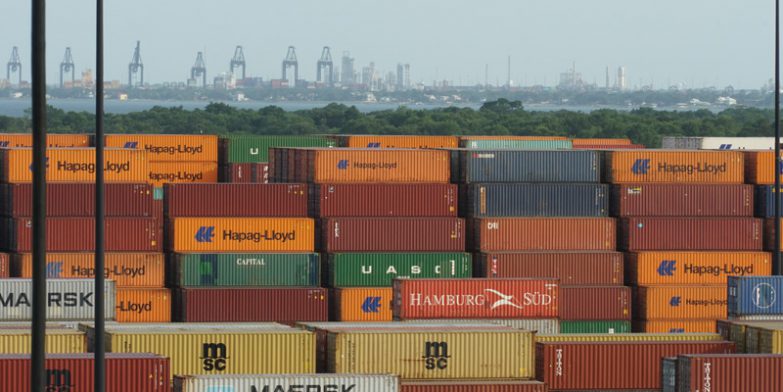
Labour disruptions in Canadian and US ports are creating significant pressures across North American supply chains, as ripple effects extend across modes and trade routes.
With major strikes and unresolved contract negotiations looming, Canadian and US port labour disputes are likely to lead to increased freight costs, disruption, and congestion in coming months.
Canadian port shutdowns intensify
In Canada, an ongoing strike by the International Longshore and Warehouse Union (ILWU) at key west coast ports, including Vancouver and Prince Rupert, has paralysed port operations, disrupting the primary gateways for Canadian imports and exports.
The Canadian east coast is also experiencing unrest, with the port of Montreal’s Termont terminals blockaded in response to proposed automation that threatens to displace longshore jobs. These disruptions have led to rising prices for onward transportation from Vancouver, as trucker shortages and delays mount, further inflating delivery costs across Canada’s inland logistics network.
With both coasts facing shutdowns, Canadian freight is increasingly being diverted to US west coast ports, where congestion is expected to worsen, particularly at Seattle, Oakland, Los Angeles, and Long Beach. US ports are now bracing for additional strain as they accommodate these diversions, potentially creating backlogs that could persist for months.
US east and Gulf coast contract uncertainty raises supply chain risks
Following October’s three-day strike on the US east and Gulf coasts, fears of further disruptions remain high.
The deal on wages that ended the strike was agreed provisionally through Biden administration intermediaries, and not face-to-face dialogue. The International Longshoremen’s Association (ILA) and the United States Maritime Alliance (USMX) haven’t been at the contract negotiating table since June.
To restart the talks and agree deals on a range of complex issues including automation, royalties, work rules and job jurisdiction is a massive challenge, that need to be negotiated between now and the new deadline of the 15th January 2025.
The brief October strike reduced capacity on several key trade routes, with westbound trans-Atlantic volumes falling by up to 15% in late October, while the Asia to US East Coast trade lane will see an approximate 17% drop in capacity in week 46. However, if the strike had lasted a week, that drop would have been about 40%
The uncertainty surrounding contract negotiations for US east coast ports is likely to prompt shippers to expedite shipments ahead of January’s deadline, which could amplify capacity constraints across North American ports.
US Presidential election
With a January inauguration, it will soon become clear if President Trump will escalate trade tensions with new tariffs. His proposed 60% tariffs on China and 20% on other countries could, according to economists, slash China’s US exports by nearly 90% and cut UK transatlantic exports by over 50%.
While the EU is said to have a contingency plan of tariffs, the UK appears unlikely to retaliate, favouring open trade instead. This tariff threat is expected to prompt significant cargo front-loading before January, potentially creating a pre-inauguration shipping peak, which could potentially segue with pre-Lunar New Year peak.
In this volatile environment, adaptable logistics strategies are essential. At Global Forwarding, we work closely with our shippers to develop contingency plans that avoid the ports affected by strikes or disruption, with alternative routes and entry points to ensure smooth supply chain operations.
For more information on how we can protect your supply chain from potential disruptions, EMAIL Adam Davies, Vice President.





